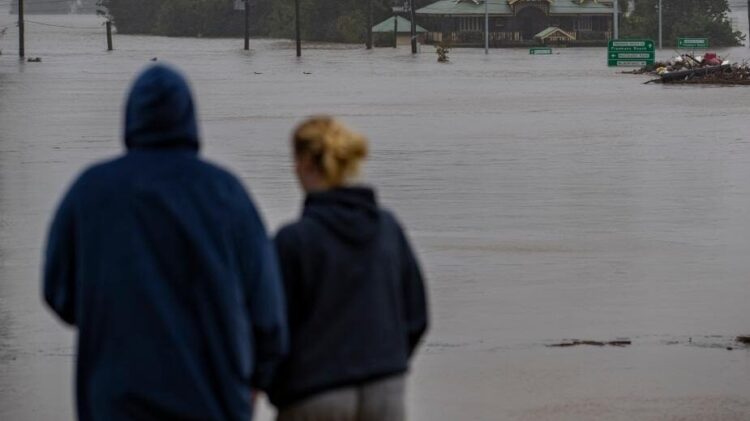Canberra: A record numbers of Australians are “very concerned” about climate change as the eastern part of the country is affected by the flood, according to a new report published on Thursday.
Think tank the Australia Institute published its 15th annual Climate of the Nation report, which charts citizens’ attitudes towards climate change and its solutions, reports Xinhua news agency.
The report found that 83 per cent of Australians are concerned that climate change will affect the food supply as a result of droughts and floods.
The same portion of participants in surveys for the report said they were concerned climate change would cause more bushfires.
Asked about measures that could be taken to reduce Australia’s carbon emissions, 68 per cent supported the introduction of national fuel efficiency standards and 64 per cent support requiring all new car sales in the country to be zero-emissions vehicles by 2035.
“As flood waters continue to rise at record levels, so too does the number of Australians worried about climate change impacts, with concern over floods at record highs,” Richie Merzian, Director of Climate and Energy for the institute, said in a statement.
“Australians are dealing with the high-cost consequences of relying on gas and coal power and three-quarters want the government to step in and plan the shift to renewables and storage.
“The Australian government has a clear mandate to do more when it comes to climate, in particular, clean transport. The upcoming electric vehicle strategy is an opportunity to get moving on fuel efficiency standards, targeted electric vehicles subsidies, and a phase-out of fossil-fuelled vehicles – all of which have strong public support,” Merzian added.
In July, the Australian Capital Territory announced a plan to ban the sale of all new vehicles powered by an internal combustion engine from 2035.
According to the Australia Institute, nationally 75 per cent of the respondents support electrifying state bus fleets by 2030 and 62 per cent believe that governments should introduce policies to encourage mode change from cars to active and public transport.
Another 62 per cent support a national subsidy scheme for bikes, e-bikes, and cargo bikes.
(IANS)
















